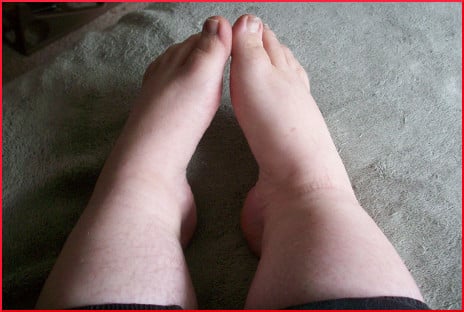
Britain’s National Obesity Observatory, in a paper on obesity and mental health, recommends focusing on psychological factors rather than on weight loss per se. Especially for the obese child, social support is the primary concern. As we have seen from the life stories of former obese children, an increase of social support at an early age might have prevented the whole problem in the first place. Consequently, in Great Britain the government decided to increasingly integrate the Child and Adolescent Mental Health Services into the wider anti-obesity strategy, so childhood obesity practitioners may work more closely with mental health professionals.
Clinicians are warned not to ignore depression, or assume that it will go away once the obesity has been treated, because it may be necessary to treat the depression in order to alleviate the obesity. When children experience shame or social isolation, or suffer from low self-esteem or depression, they are more likely to turn to food for comfort. Catching those problems early can limit the need for weight loss intervention in later years. The report says:
Whilst some studies reported no change in weight status, they did find improvements in self-worth, athletic competence, social acceptance and more positive feelings/emotions. This suggests that weight management programmes have the potential to equip obese young people with positive self-evaluations that may enhance their future well-being, even if weight loss is not apparent in the short-term.
In a section on the destigmatization of obesity, the NOO report confirms and emphasizes how very stressful bullying is to a child:
A recent review found no evidence to indicate that any type of stigmatising experience, teasing or commentary regarding weight, or any enhancement of body image dissatisfaction, has any positive influence on the motivation of children to lose weight or to engage in effective weight reduction strategies.
In other words, coercion doesn’t do a darn bit of good and does considerable harm. The report also notes that weight-based teasing can do more than just hurt a child’s feelings. It can provide the wrongest kind of motivation, leading to unhealthy attempts at weight control and serious eating disorders.
True stories
The damage might even be worse when trusted adults engage in verbal abuse. A blogger with the handle “My Bariatric Life” reported on how a seventh-grade teacher said she reminded her of an Edsel, while another girl in the class was like a sleek Camaro. When the first child asked her father for an explanation, he said the Edsel was “a big tank of a car.”
A YouTube video tells the story of a child named Brianna, who weighed 100 pounds in kindergarten and went up to nearly 200 while still in grade school. Not surprisingly, other kids called her unflattering names. According to Brianna’s mother, she has a “slow metabolism” and the family’s pediatrician assured the parents that she would “grow into her body.” But the day came when the girl was taken for a battery of tests, none of which said anything meaningful, so her parents concluded that diet and exercise were the answers.
Brianna’s mother designed a workout program for her daughter that included an hour and 15 minutes on the treadmill each day, including 25 minutes of running. The entire family changed its eating habits, focusing on the elimination of sugar and fats. The entire family started going for a 4-mile walk every day, and following the historic U.S. Post Office motto, they were stopped by neither rain nor sleet nor gloom of night.
The big plus is that they did it as a family, not isolating the obese child. As the NOO report reminds us, interventions that involve parents, siblings, caregivers, or peers seem to work out better than the ones that target individuals. The potential downside is, if the child wasn’t 100% on board, it might not stick. The video clip’s title, “9-Year-Old Girl Loses 66 Pounds After Being Bullied,” almost seems to imply that bullying had a positive effect. This is highly unlikely, and is another danger sign for possible future trouble.
Your responses and feedback are welcome!
Source: “Obesity and mental health,” NOO.org, 03/11
Source: “Bullying of Overweight and Obese Children,” HealthCentral.com, 06/29/13
Source: “9-Year-Old Girl Loses 66 Pounds After Being Bullied!” YouTube.com, 12/11/12
Image by Alisha Vargas

 FAQs and Media Requests:
FAQs and Media Requests: 












One Response
Thanks for sharing about the verbal abuse I received from a teacher about my weight. Shame on adults who bully children!